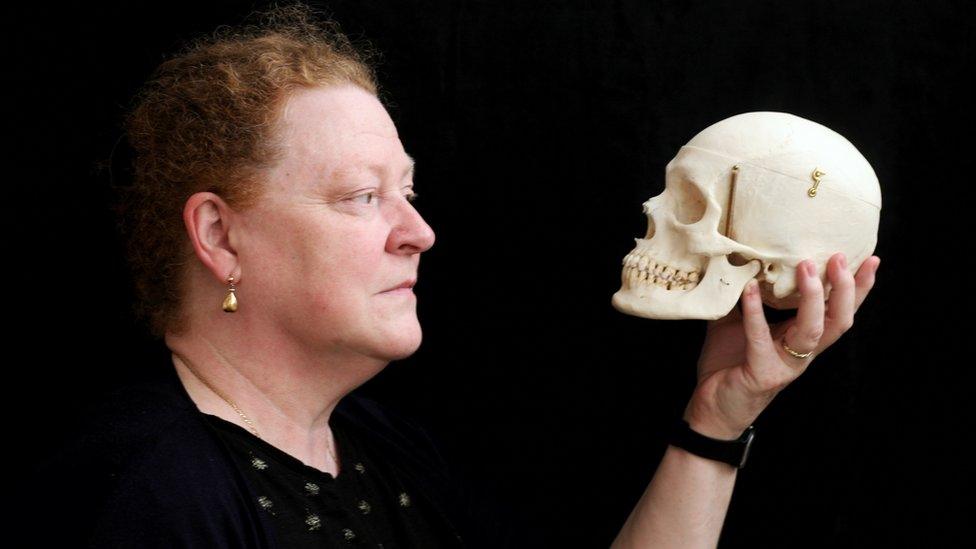'I'm a friend at the end - why I became a death doula'
- Published
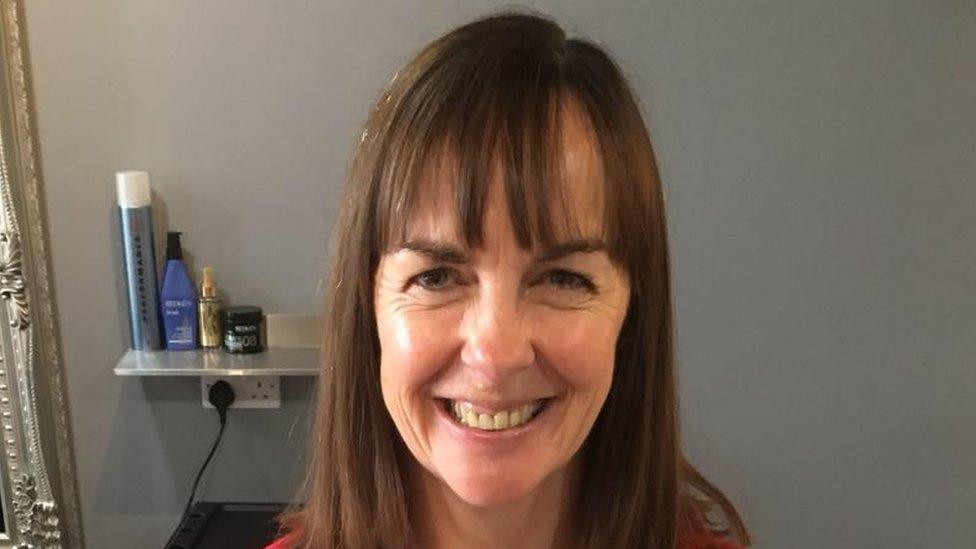
Hilary Pepiette is an end-of-life doula
When a loved one dies, it is often medical staff, a hospice and an undertaker who deal with the final moments.
But families can now bring them back into the home, engaging an end-of-life doula to take care of the last wishes and arrangements for their loved ones.
Hilary Pepiette, a solicitor, is one of Scotland's first end-of-life doulas.
She thinks there is a great need for her role as a "friend at the end".
Hilary told BBC Radio Scotland's Kaye Adams programme: "An end of life doula is someone who supports and walks alongside a dying person, the family and people close to that person, through the dying process, through the death and sometimes after that.
"The doula is your consistent flexible presence to fill in the gaps and give support emotionally, spiritually and practically in whatever way it is needed for each individual person and your family."
Hilary believes we have handed over control to the professionals.
She said: "I have seen family members who have died and I think there is a feeling for me that I would love to do more and make sure that people can have the best possible death they can have, and to celebrate life.
"It is about making sure people live their life to the absolute fullest potential as long as they possibly can, and celebrate that, and then help them have the death that they want to have, give them come control over that.
"My mum died at home and while we did the best we could and it was a good death."
Death is a taboo
But she added: "I wish I knew then what I do now about what was going on for her at that time.
"It's only in the past 100 years or so that people have stopped caring for their dying family members at home and it all became about hospitals and the medical profession.
"Death has become a taboo and something that people have stopped talking about. But the more we are open about it the better. Being with someone and having those final conversations is so rewarding."
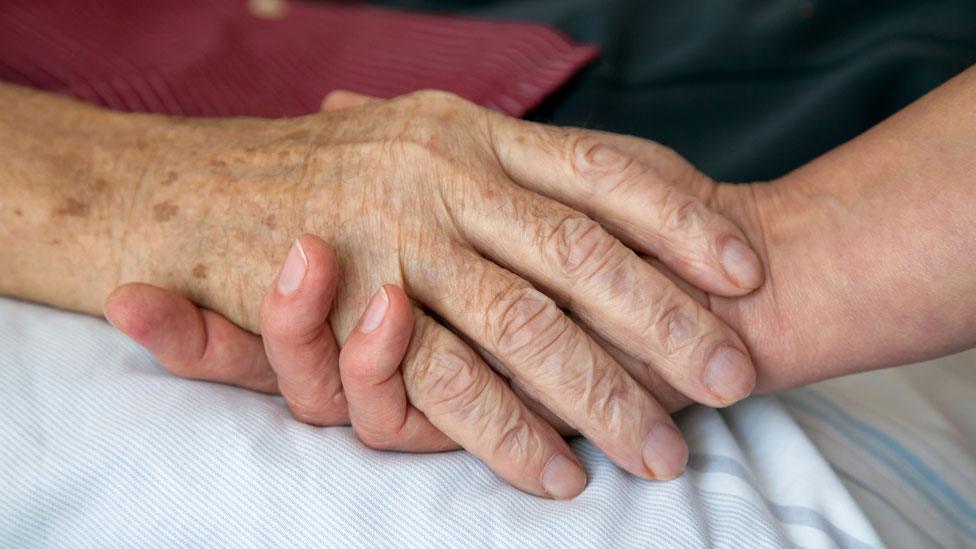
Hilary thinks people can talk about their end of life wishes more easily with someone who is not family
As a solicitor in Edinburgh, Hilary processed wills and personal business. She decided to take her end-of-life services one step further.
She said: "It felt natural. I have been a private client solicitor for more than 20 years, and through that I have worked with a lot of people planning wills, powers of attorney and advanced medical directives to help them think about and plan for the end of their life.
"It seemed like a natural progression to me to take that one step further and think about what happens after the legal documents have been put in place."
Hilary's firm BTO, is the first to offer an end-of-life doula as part of its services.

What does an end-of-life doula do?
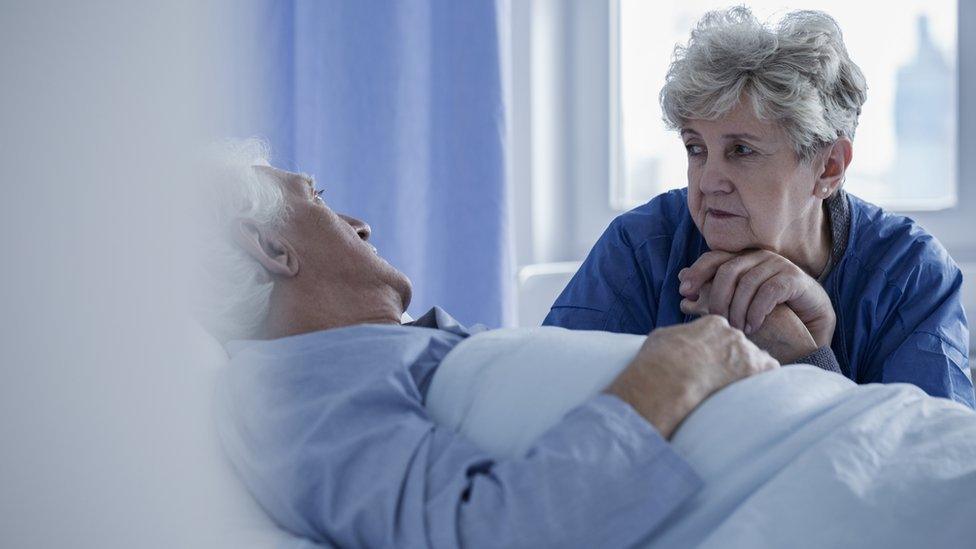
A doula will talk and listen to the patient's wishes and hopes for the way they will die
According to Hilary: "I do things from washing dishes or making their dinner or cutting someone's nails or feeding them at the end of their life. Also providing the personal care that might be provided in a hospice.
"Also talking. There is a big role for conversation here where it can be really hard within a family to have the difficult conversations about what you want the very end of your life to be like, where do you want to be when you die, who do you want to be there. Do you want music playing?
"It is establishing what the biggest hopes and fears are. What are you most afraid of? Is it pain or losing control of autonomy, of making decisions. Having those conversations is a big part a doula can play.
"Some people are never comfortable talking about it. But most people who are given that opportunity and a safe place to do that are happy to do that and have those conversations."

Someone who agrees with Hilary is Prof Dame Sue Black, forensic anthropologist and vice chancellor for engagement at Lancaster University, wants death to be celebrated more.
She told Kaye Adams: "It is an inevitability, it is going to happen. What we can't control is how it happens.
"In the past that would have often been done by family. I think we have become scared of death, we don't want to admit it exists."
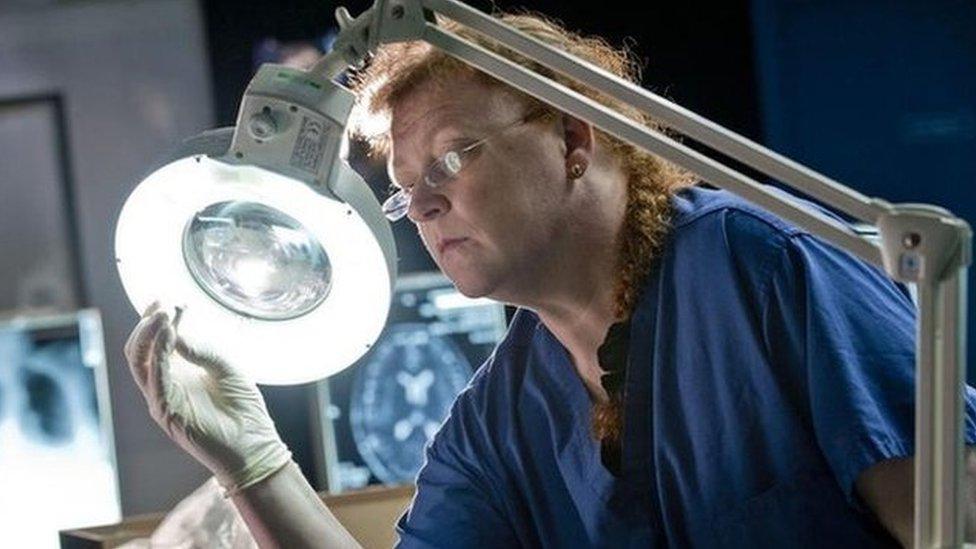
Prof Black was awarded a Damehood in 2016
Prof Black thinks people have been conditioned to believe in a certain way of doing things.
She said: "People tend to accept there are rules we have to abide by but generally there aren't. It's important those left behind feel they have the autonomy to respect the person they have lost in a way that helps them with their grief.
"We think a funeral has to be very specific in that it has to have hymns and speaking, and it doesn't. We need to have a confidence that those who are left behind have control over the celebration of the person who has been lost."
She also thinks people should not be afraid of the last moments and to make the most of them.
She said: "I think we forget sometimes when patients are advancing towards the end of life that we think they are not listening and don't communicate.
"There is some research that suggests the last sense to go may well be hearing so that's the time we need to tell them how much we love them, how much we care, what a difference they've made.
"One of the last things we can do is communicate."
- Published25 June 2018
